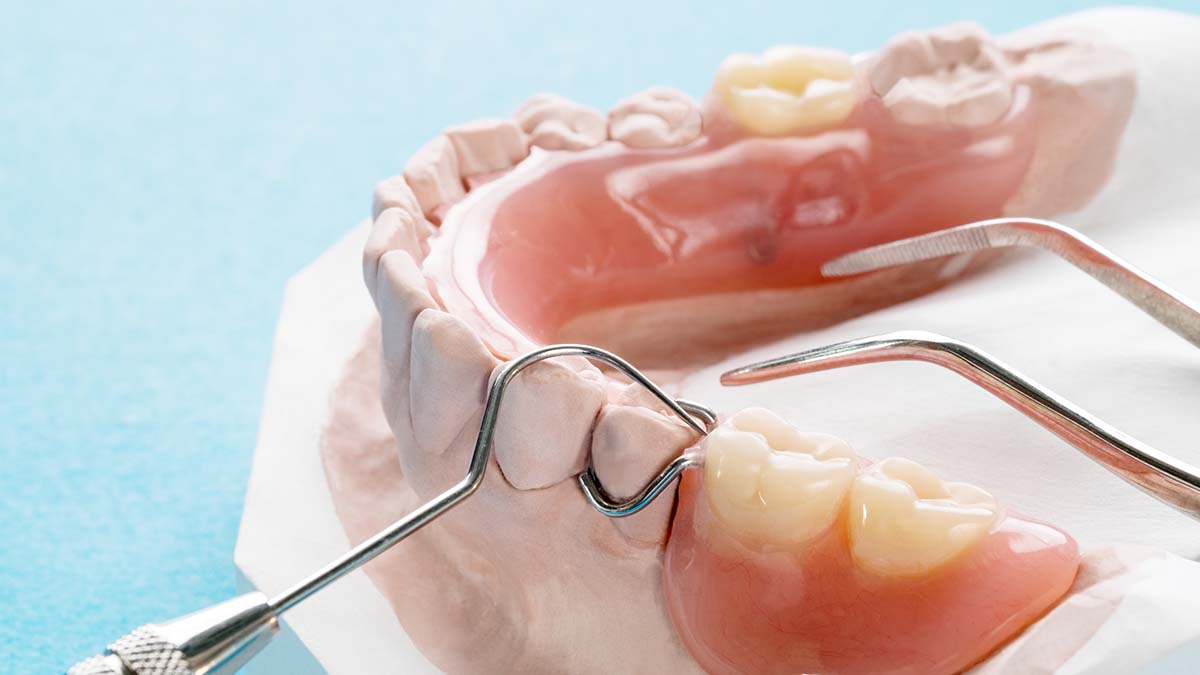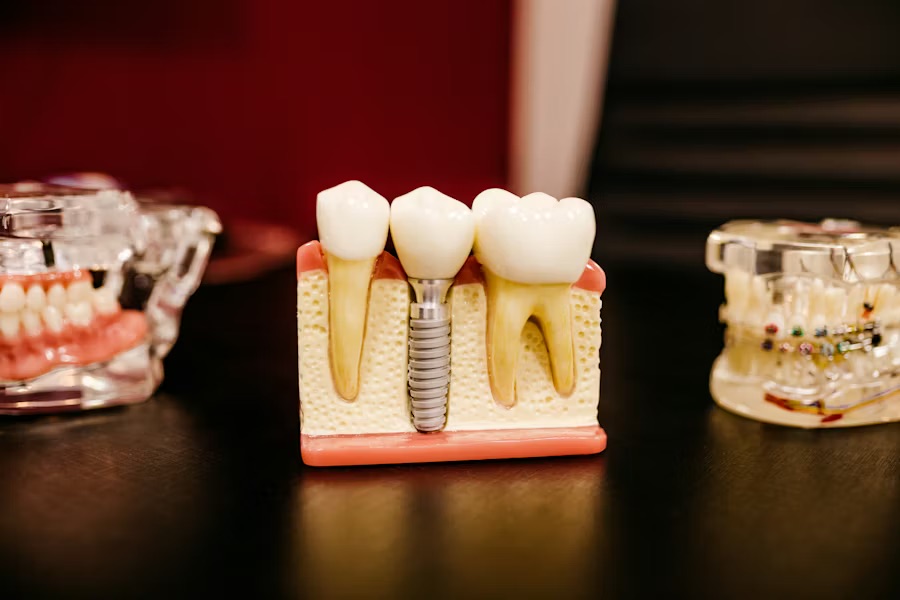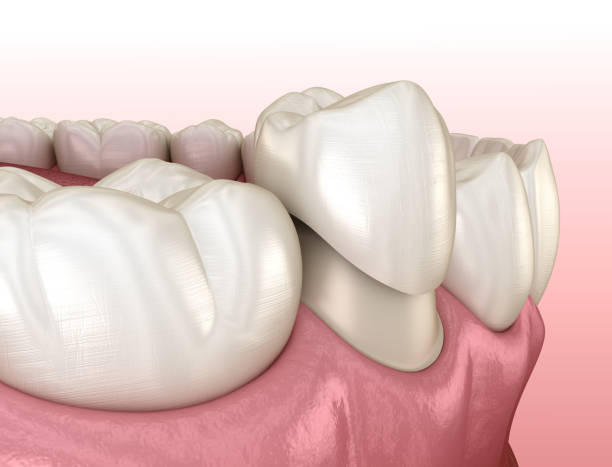Blog - Richmond, VA
Tips, Facts, And The
Latest In Dentistry

Implant-Supported Dentures vs Traditional Dentures: Pros and Cons

Many patients in Richmond, VA who have lost several teeth find themselves deciding between two main treatment paths: Traditional Dentures or Implant-Supported Dentures. Both are designed to restore chewing function and appearance, but they work differently and can impact comfort, stability, and long-term oral health in unique ways.
This guide will explain how each type of denture functions, highlight the advantages and drawbacks of both, and provide a side-by-side comparison to help patients understand the key differences. We’ll also review factors like cost, bone health, and daily maintenance so Richmond patients can see which option may better fit their needs and lifestyle. Finally, we’ll share how Inspired Smiles helps patients make informed decisions through personalized consultations and advanced treatment options.
How Traditional Dentures Work
Traditional dentures are removable appliances that rest directly on the gums. They are custom-made to replace missing teeth and the surrounding tissues, helping patients restore basic chewing and speaking abilities. Unlike fixed options, these dentures are not anchored to the jawbone. Instead, they are held in place through a combination of natural suction, dental adhesives, or clasps that attach to any remaining teeth.
Because they do not require surgery, traditional dentures are often a first step for patients who want to restore their smile more quickly and at a lower initial cost.
Advantages of Traditional Dentures
Traditional dentures remain a popular solution for tooth replacement because they are practical and accessible. Some of the main benefits include:
- Lower upfront cost – Traditional dentures are usually the most budget-friendly option. They provide a complete replacement for missing teeth without the higher initial cost of implants, making them accessible for many patients in Richmond who want a faster solution.
- Non-surgical treatment – Since no surgery is required, the process is simpler and less invasive. This makes traditional dentures a good choice for patients who have medical conditions that make surgery risky or for those who prefer not to go through a surgical procedure.
- Faster turnaround – Dentures can often be completed within weeks. This allows patients to regain basic chewing function and a fuller smile more quickly than implant treatments, which may require several months for healing.
- Widely available – Nearly every dental office offers dentures, so patients have broad access to treatment without needing to find a specialized provider. This also means adjustments or repairs can typically be handled by most general dentists.
Drawbacks of Traditional Dentures
While traditional dentures are useful and affordable, they also come with limitations that patients should understand:
- Slippage or discomfort – Because dentures rest on the gums, they may shift while talking or eating. This can create sore spots, cause irritation, and sometimes make patients feel less confident in social settings. Adhesives can help, but they do not fully prevent movement.
- Bone loss over time – Without natural tooth roots or implants to stimulate the jawbone, bone shrinkage often occurs. This can change facial appearance over time, making the lower face look sunken and affecting the fit of the dentures.
- Ongoing adjustments and replacements – As the jawbone changes, dentures gradually lose their fit. Patients may need relines, repairs, or entirely new dentures every few years. This adds to the long-term cost and requires regular dental visits to keep them functional.
How Implant-Supported Dentures Work
Implant-supported dentures are dentures that are anchored to dental implants surgically placed into the jawbone. The implants act like artificial tooth roots, fusing with the bone and creating a stable foundation. Once healed, the denture attaches securely to these implants, which helps it function much more like natural teeth compared to removable dentures.
Because they are fixed to the implants, these dentures do not rely on suction or adhesives to stay in place. Patients in Richmond can also ask about same-day dentures, where implants and a temporary denture are placed in one visit, reducing treatment time and allowing patients to leave with a complete smile the same day.
For more details about implant solutions, see our page on secure denture implants Richmond.
Advantages of Implant-Supported Dentures
Implant-supported dentures provide several benefits that make them a strong choice for many patients:
- Superior stability – Because the dentures are fixed to implants, they do not slip or move out of place. Patients can eat, speak, and smile without worrying about their dentures shifting unexpectedly.
- Jawbone preservation – Implants act like natural tooth roots, stimulating the bone and preventing the bone shrinkage that often occurs with traditional dentures. This helps maintain facial shape and supports long-term oral health.
- Improved chewing ability and speech – With stronger stability, patients can eat a wider variety of foods, including firmer or crunchier options that are harder to manage with removable dentures. Clearer speech is also a common benefit since the dentures stay in place.
- Longer lifespan – With proper care, the implants themselves can last a lifetime, while the attached dentures often last much longer than traditional ones. This makes them a durable investment.
- Natural appearance – Implant-supported dentures look and feel closer to natural teeth. Patients often find that this option restores not only function but also confidence in their smile.
Drawbacks of Implant-Supported Dentures
While highly effective, implant-supported dentures do have some considerations:
- Higher upfront cost – The initial investment is greater compared to traditional dentures. However, many patients see the value in the long-term durability and reduced need for replacements.
- Requires minor surgery – The procedure involves placing implants into the jawbone. Most patients tolerate this well, but it may not be suitable for those with certain health conditions or limited bone density without additional treatment.
- Longer healing time – It can take several months for the implants to fully integrate with the jawbone before the permanent denture is placed. During this time, patients may use a temporary solution.
Key Differences Between Implant-Supported and Traditional Dentures
Both traditional dentures and implant-supported dentures replace missing teeth, but they differ in important ways. These differences affect daily comfort, long-term oral health, and overall value. Understanding these details helps Richmond patients make a confident choice.
Main Areas of Difference
- Comfort – Traditional dentures rest on the gums and can sometimes rub, slip, or cause sore spots. Implant-supported dentures feel more natural because they are anchored to implants, giving a secure and stable fit.
- Stability – With traditional dentures, patients may need adhesives to keep them in place, and even then, movement can still occur. Implants provide strong support, so the denture stays in place when eating or speaking.
- Bone Preservation – Traditional dentures do not stimulate the jawbone, which can lead to gradual bone loss. Implant-supported dentures help prevent bone shrinkage by acting like tooth roots, keeping the jaw healthier over time.
- Maintenance Needs – Traditional dentures usually require relining or replacement every few years. Implant-supported dentures last longer with routine dental care, and adjustments are less frequent.
- Long-Term Cost – Traditional dentures cost less at first but may require multiple replacements. Implant-supported dentures cost more upfront but are often more cost-effective over the long term due to durability and reduced maintenance.
Comparison Table
| Feature | Traditional Dentures Richmond | Implant-Supported Dentures Richmond |
|---|---|---|
| Comfort | May rub or shift on gums | Feels secure, similar to natural teeth |
| Stability | Held by suction, adhesives, or clasps | Anchored to implants, no slipping |
| Bone Preservation | Does not prevent bone loss | Stimulates bone and preserves structure |
| Maintenance | Relining, adjustments, and replacements | Minimal adjustments, lasts longer |
| Long-Term Cost | Lower upfront cost but ongoing replacements | Higher upfront cost, better long-term value |
Which Denture Option Is Right for You?
The choice between traditional dentures and implant-supported dentures depends on several factors that are unique to each patient. Health, budget, jawbone condition, and personal priorities all play a role in determining the best treatment.
- Health and bone condition – Patients with good jawbone density are often candidates for implant-supported dentures. If bone loss has already occurred, bone grafting may be needed before implants can be placed. For patients who are not able or willing to undergo surgery, traditional dentures may be a more practical choice.
- Budget – Traditional dentures typically cost less at the start, while implant-supported dentures require a higher upfront investment. However, implants may save money in the long run since they last longer and reduce the need for frequent replacements.
- Lifestyle priorities – Patients who value stability, chewing strength, and a natural feel may prefer implants. Those seeking a faster solution or non-surgical option may lean toward traditional dentures.
Because each case is different, a professional consultation in Richmond is the best way to determine which option matches your needs. At Inspired Smiles, patients receive a full evaluation of oral health, bone structure, and treatment goals before deciding on the most suitable solution.
Schedule a Consultation for Denture Options at Inspired Smiles in Richmond
Choosing between traditional dentures and implant-supported dentures is a personal decision that depends on health, lifestyle, and long-term goals. At Inspired Smiles, we help Richmond patients explore all tooth replacement options, from full denture implants to fixed implant dentures and same-day dentures Richmond patients can often complete in one visit.
Our dentists take time to understand your priorities, explain the benefits and limitations of each option, and create a plan designed around your needs. If you are ready to explore the best denture option Richmond patients can trust for long-lasting comfort and function, schedule your Richmond implant-supported denture consultation.
FAQs About Denture Options
Are implant-supported dentures more comfortable than regular dentures?
Yes. Implant-supported dentures are usually more comfortable because they are anchored securely to dental implants instead of resting on the gums. This prevents slipping and reduces sore spots, which are common with traditional dentures. Many Richmond patients report that implant-supported dentures feel closer to natural teeth, allowing them to eat and speak with more confidence.
How long do implant-supported dentures last?
Implant-supported dentures are designed to be long-lasting. With good oral hygiene and routine dental visits, the implants themselves can often last a lifetime. The denture portion that attaches to the implants may need replacement after 10–20 years due to normal wear, but it usually lasts longer than traditional dentures. This makes them a durable option for patients looking for a more permanent solution in Richmond.
Can I switch from traditional dentures to implant-supported dentures later?
Yes. Many patients begin with traditional dentures and later decide to upgrade to implant-supported dentures once they are ready for a longer-term solution. Your dentist will evaluate your jawbone health, since adequate bone is needed to support implants. If bone loss has already occurred, bone grafting may be recommended before implants can be placed. This means patients in Richmond often still have options even if they’ve worn traditional dentures for years.
What is the cost difference between regular dentures and implant dentures in Richmond?
Traditional dentures usually cost less at the start, which makes them attractive for patients looking for a budget-friendly option. However, they often require adjustments, relines, or full replacements every few years, which adds to the long-term expense. Implant-supported dentures cost more upfront because they involve surgery and specialized materials, but they last longer and help preserve bone health. Over time, many Richmond patients find implants to be the better value.
Do implant-supported dentures look more natural?
Yes. Implant-supported dentures are designed to look and feel more like natural teeth compared to traditional dentures. Because they are fixed to implants, they do not shift or create the “loose” look that removable dentures sometimes cause. Many Richmond patients find that implant-supported dentures improve both their smile’s appearance and their self-confidence in social and professional situations.




